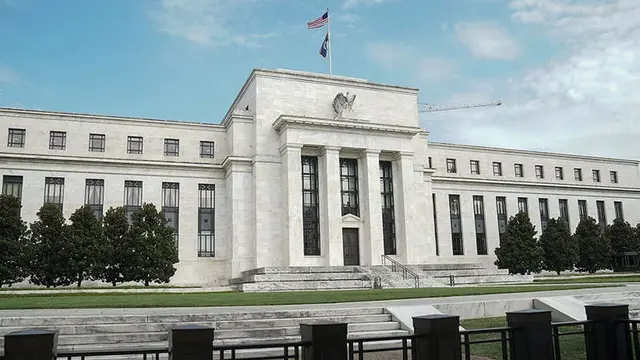Federal Reserve Vice Chair Richard Clarida announced on Monday that he would be resigning from his position early following months of media reports scrutinizing stock trades he made toward the beginning of the COVID-19 pandemic.
In a letter to President Biden, Clarida said, "It has been a distinct honor and immense privilege to serve as Vice Chair of the Federal Reserve's Board of Governors since September 17, 2018. With my statutory term as Governor due to expire on January 31, 2022, I am writing to inform you that it is my intention to resign from the Board on January 14, 2022."
As The Washington Post noted, it was reported in October that Clarida bought shares in an investment fund that held stocks in February 2020, shortly before the Fed announced that it would provide economic assistance in light of the pandemic.
Last week, Clarida corrected his public disclosure of stock trades after a report from the Post found that he had failed to disclose the full extend of his trades in December. The Post reported that Clarida moved money out of a stock fund as markets responded to the worsening pandemic. Three days later, Clarida moved money back into the fund, shortly before the Fed announced new economic assistance.
Clarida made no mention of the recent media scrutiny on his trading activity in his resignation letter.
"I am proud to have served with my Federal Reserve colleagues as we, in a matter of weeks, put in place historic policy measures that, in conjunction with fiscal policy, steered the economy away from depression and that have supported a robust recovery in economic activity and employment since," he said.
Clarida's resignation comes months after two other Fed officials - Robert Kaplan and Eric Rosengren - also resigned following scruity of their trades during the pandemic.
Kaplan and Rosengren, presidents of the Federal Reserve Banks of Dallas and Boston, respectively, both announced they would be stepping down in late September. Rosengren cited ongoing health issues, and he was also less than a year away from hitting the maximum retirement age of 65.
Both officials had come under heightened scrutiny after financial disclosures obtained by The Wall Street Journal and Bloomberg revealed trades in late March and April, around the same time the Fed was taking unprecedented action to stabilize markets.
The two Fed officials maintained that they followed the Fed's rules on financial trades. However, the scrutiny prompted Federal Reserve Chair Jerome Powell to launch a review of the Fed's standards, and he said in a statement at the time that "no one" at the Federal Open Market Committee was happy with the situation.
(THE HILL)
 简体中文
简体中文

